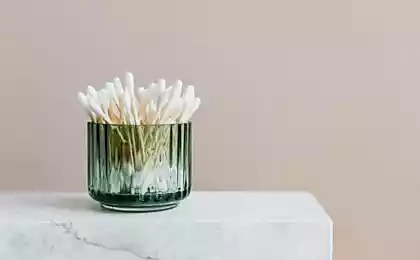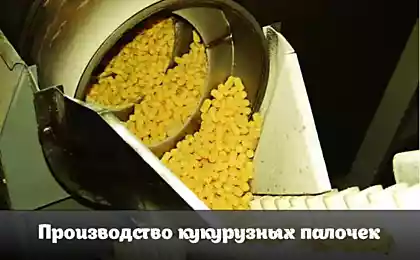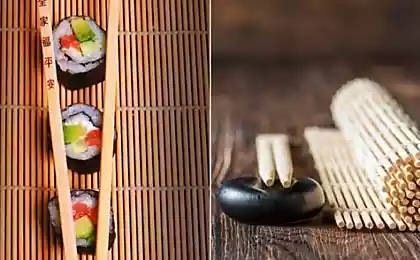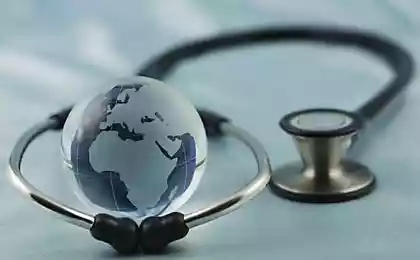125
Why you should stop using cotton swabs
In multifunctional cotton-stickSo adored by makeup artists and women around the world, it would seem that there is nothing wrong. And for hygiene, they are suitable, and for cleaning small surfaces, and makeup with them is very convenient to fix. But in the UK they don’t think so, and they do. The Ministry of Environment, Food and Agriculture has banned their sale and manufacture and they are due to disappear from store shelves next April.
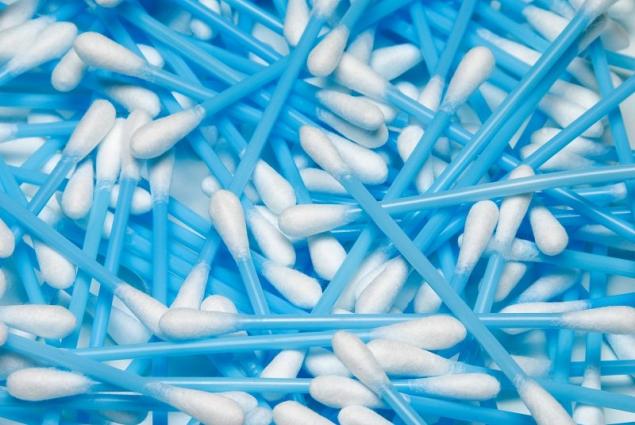
DepositPhotos
What will happen to this adaptation now, will it affect other countries and, most importantly, will it really save humanity? This will tell the editorial board. "Site".
The fact is that in a year only the British throw away 1.8 billion sticks – 10% of them flush down the toilet. The main catch is in a plastic stick on which a harmless wool is attached.
The UK government is currently drafting a bill to ban single-use plastic items such as cocktail straws. Once the consultation process is completed, the ban will take effect between October 2019 and October 2020.
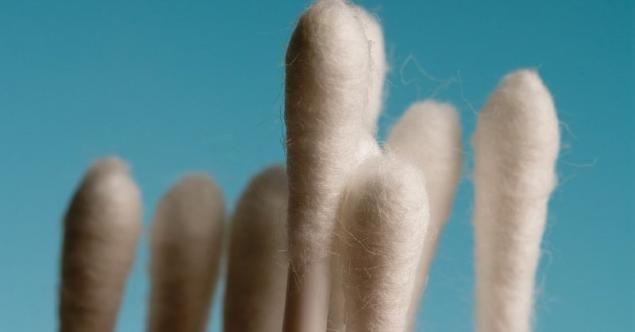
One and a half million tons of plastic in the oceans and on shore kill 100,000 marine animals annually. They either eat that waste, or just get entangled in it. Large garbage patches or islands form in the oceans. Currently, there are 5 such spots: two in the Pacific and Atlantic Oceans and one in the Indian Ocean.
Naturally, not only cotton swabs swim in them, but also from bags, bottles, nets and other plastic waste. And to help solve this problem, governments are trying to reduce the production of plastic items.
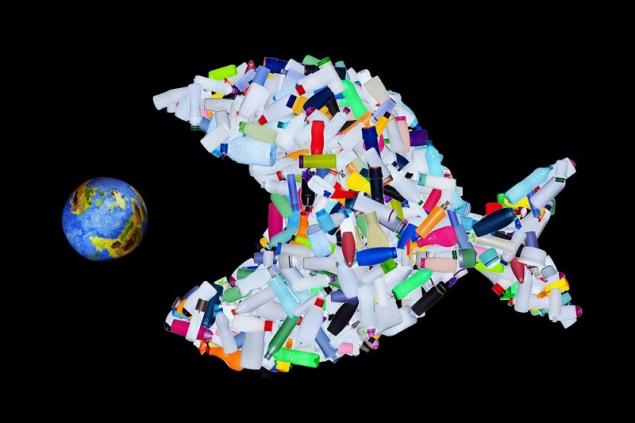
DepositPhotos
It is clear that cotton swabs as a category no one is going to ban — just now they are forced to make not plastic, but, for example, from bamboo and other wood. And then there is another question – how right is it? After all, taking into account the number of hygiene sticks consumed, this will increase the deforestation of trees, which are also necessary for our planet.
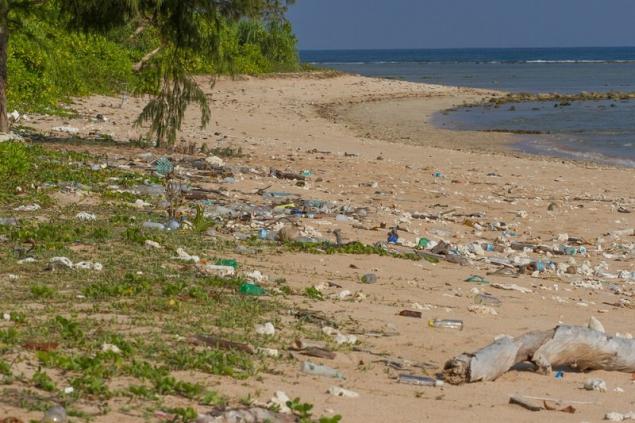
DepositPhotos
Despite the need to prevent the potentially dangerous effects of plastic pollution, the arguments surrounding reducing or banning these materials are often short-sighted. For example, replacing plastics with alternative materials, such as various metals or glass, will cost more not only economically but also in terms of environmental protection.
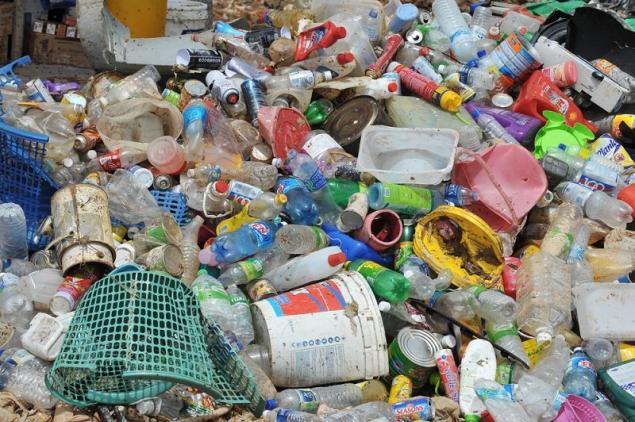
DepositPhotos
The reason is the energy and resources consumed, including water, that are needed to process alternative materials. According to many experts, it is better to turn plastic into alternative energy and help clean the ocean. For example, the energy from one recycled plastic bottle is enough for a 60-watt light bulb to shine for 6 hours.
Recycling plastic can save up to 2/3 of the energy needed to make plastic from raw materials.
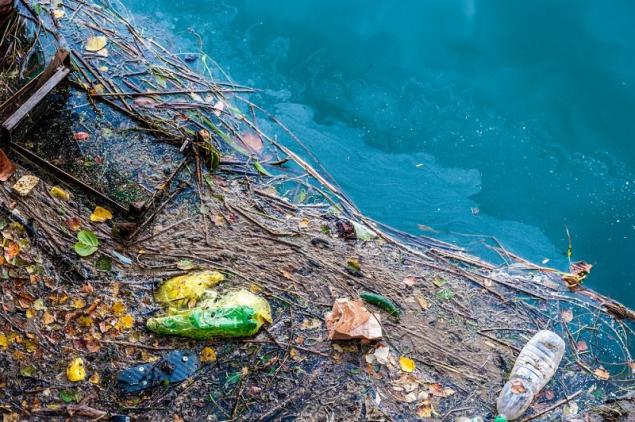
DepositPhotos
Every day a person has a choice: buy mineral water in a glass bottle or in a plastic one, take paper disposable dishes or plastic plates for a picnic, use reusable household bags or cellophane bags from the store. After all, it depends on each person: he sorts the garbage or not, throws it into the urn or where his eyes look, whether he will economically use natural goods.

DepositPhotos
For example, 23-year-old Danish inventor and entrepreneur Boyan Slat came up with his own way to save the environment. While diving, he noticed a large amount of plastic in the ocean and decided to devote his time to cleaning the ocean of plastic debris. His team, The Ocean Cleanup, developed a passive drifting device to collect garbage. It uses the force of the current to capture waste.
Today we need to think about the environment. After all, the future of not only plants and animals depends on its condition, but also the health of children and grandchildren. Let's be reasonable!
Tell us in the comments if you think plastic is the biggest enemy to the environment. Share this article with your friends on social media!
Photo by depositphotos preview.

DepositPhotos
What will happen to this adaptation now, will it affect other countries and, most importantly, will it really save humanity? This will tell the editorial board. "Site".
The fact is that in a year only the British throw away 1.8 billion sticks – 10% of them flush down the toilet. The main catch is in a plastic stick on which a harmless wool is attached.
The UK government is currently drafting a bill to ban single-use plastic items such as cocktail straws. Once the consultation process is completed, the ban will take effect between October 2019 and October 2020.

One and a half million tons of plastic in the oceans and on shore kill 100,000 marine animals annually. They either eat that waste, or just get entangled in it. Large garbage patches or islands form in the oceans. Currently, there are 5 such spots: two in the Pacific and Atlantic Oceans and one in the Indian Ocean.
Naturally, not only cotton swabs swim in them, but also from bags, bottles, nets and other plastic waste. And to help solve this problem, governments are trying to reduce the production of plastic items.

DepositPhotos
It is clear that cotton swabs as a category no one is going to ban — just now they are forced to make not plastic, but, for example, from bamboo and other wood. And then there is another question – how right is it? After all, taking into account the number of hygiene sticks consumed, this will increase the deforestation of trees, which are also necessary for our planet.

DepositPhotos
Despite the need to prevent the potentially dangerous effects of plastic pollution, the arguments surrounding reducing or banning these materials are often short-sighted. For example, replacing plastics with alternative materials, such as various metals or glass, will cost more not only economically but also in terms of environmental protection.

DepositPhotos
The reason is the energy and resources consumed, including water, that are needed to process alternative materials. According to many experts, it is better to turn plastic into alternative energy and help clean the ocean. For example, the energy from one recycled plastic bottle is enough for a 60-watt light bulb to shine for 6 hours.
Recycling plastic can save up to 2/3 of the energy needed to make plastic from raw materials.

DepositPhotos
Every day a person has a choice: buy mineral water in a glass bottle or in a plastic one, take paper disposable dishes or plastic plates for a picnic, use reusable household bags or cellophane bags from the store. After all, it depends on each person: he sorts the garbage or not, throws it into the urn or where his eyes look, whether he will economically use natural goods.

DepositPhotos
For example, 23-year-old Danish inventor and entrepreneur Boyan Slat came up with his own way to save the environment. While diving, he noticed a large amount of plastic in the ocean and decided to devote his time to cleaning the ocean of plastic debris. His team, The Ocean Cleanup, developed a passive drifting device to collect garbage. It uses the force of the current to capture waste.
Today we need to think about the environment. After all, the future of not only plants and animals depends on its condition, but also the health of children and grandchildren. Let's be reasonable!
Tell us in the comments if you think plastic is the biggest enemy to the environment. Share this article with your friends on social media!
Photo by depositphotos preview.

